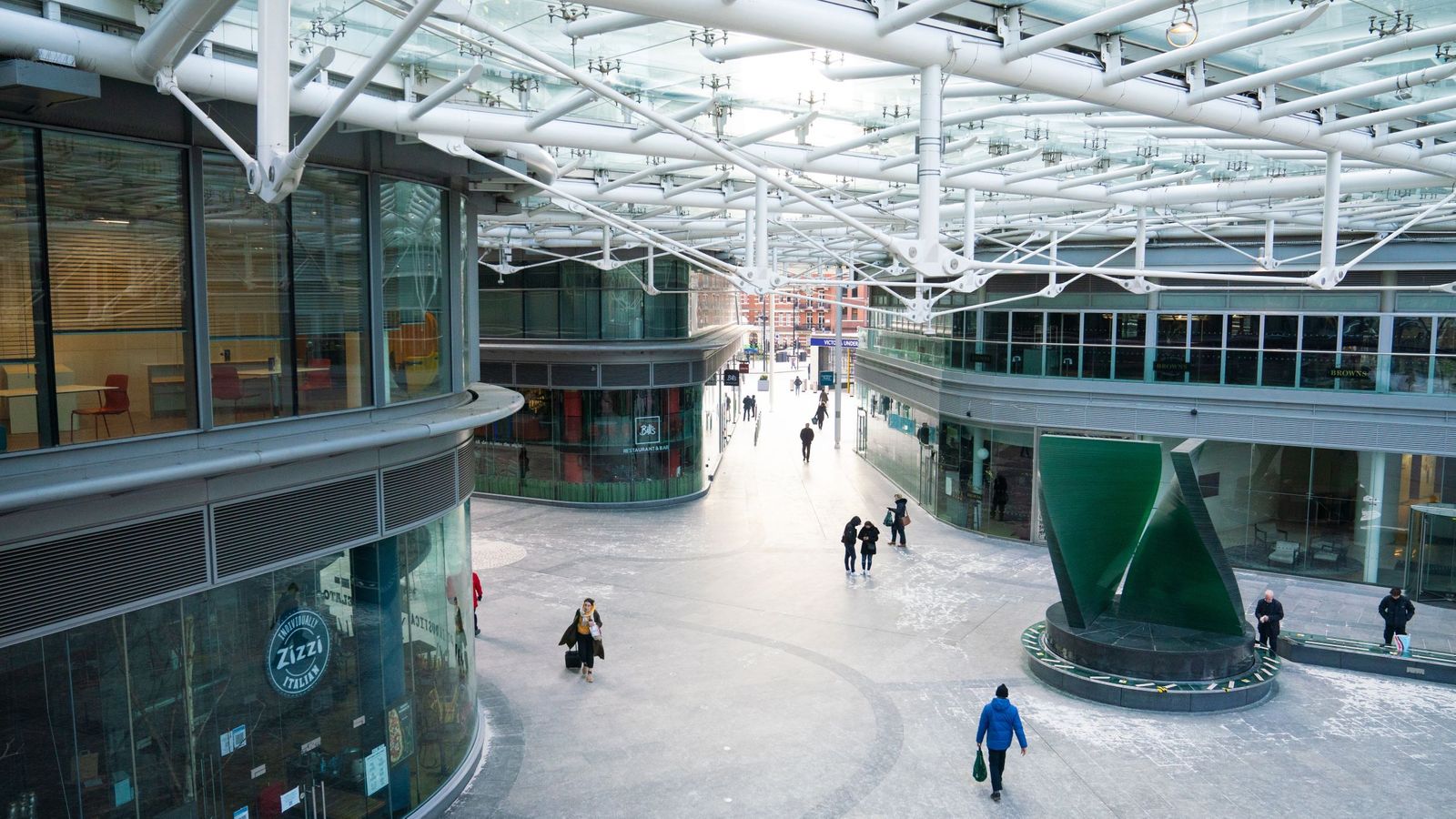Households saved a record £238bn last year as the locked down economy slumped, official figures show.
Revised data from the Office for National Statistics (ONS) confirmed that Britain’s GDP suffered its biggest annual decline for three centuries in 2020 as coronavirus restrictions crushed business activity.
But the savings data may fuel hopes of a spending spree fuelled by cash squirrelled away by households left unable to use much of their income because of lockdowns.
Please use Chrome browser for a more accessible video player
It revealed the savings ratio – that is the level of household saving as a proportion of household income – was a record 16.3% last year, up from 6.8% in 2019.
That translated to £238bn of gross savings, the highest level on records going back to 1963, and up from £99bn a year earlier.
At the same time there was a record fall of 10%, or £136bn in consumer spending, easily beating the other time it has fallen – by 2.8% in 2009 during the global financial crisis.
The ONS now judges that UK GDP shrank by 9.8% last year, a very slight improvement on the initial estimate of a 9.9% decline but still the worst performance since the Great Frost of 1709.
That upgrade was helped along by growth of 1.3% in the fourth quarter, previously measured at 1% – with growth coming despite a one-month lockdown in England in November.
Nevertheless the 2020 slump was bigger than that experienced by most other advanced world economies and left the UK’s 7.3% smaller than it was prior to the pandemic.
Despite that, disposable incomes have held up – climbing by 0.8% as the government’s furlough scheme has headed off a potential surge in unemployment.
GDP experienced a rollercoaster ride in 2020, shrinking by 2.8% in the first quarter and by 19.5% in the second quarter as the first lockdown took hold.
But the reopening of the economy over the summer saw it bounce back with growth of 16.9% over the July-September period before the much slower but still positive expansion of 1.3% in the last three months of the year.
GDP is expected to have shrunk again in the current first quarter due to the impact of latest lockdowns though the Bank of England sees a rapid recovery later in the year as vaccines are rolled out.
It anticipates some of this coming from households spending a small but significant proportion of the wall of savings they have built up.
Some forecasters think the proportion splashed out will be higher with one report pointing to a £50bn spending spree.
Economists at Investec, a bank, estimate that the level of “excess” savings now stands at £121bn.
Investec’s Philip Shaw said: “It is difficult to judge what proportion of pent-up savings will be spent, and when, but this does seems to be a source of an upside risk to growth over the next 12 months or so, particularly if the withdrawal of the furlough schemes fails to result in a big spike in unemployment.”






















